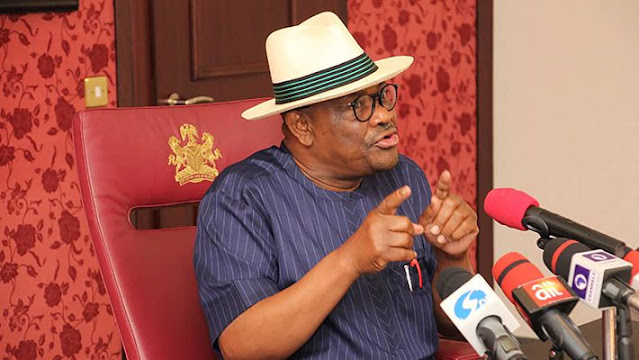On Thursday, August 28, 2025, Nigeria’s Minister of Communications, Innovation and Digital Economy, Dr. Bosun Tijani, was named to the prestigious 2025 TIME100 Artificial Intelligence (AI) list, alongside global tech luminaries such as Elon Musk and Sam Altman. The recognition, announced by TIME magazine, celebrates the 100 most influential figures shaping the future of AI worldwide, highlighting Tijani’s pivotal role in advancing Nigeria’s AI ecosystem. According to TIME editors, the selection process involved a rigorous review of key AI developments over the past year, with input from experts and industry leaders. Tijani’s inclusion underscores Nigeria’s growing influence in harnessing AI for inclusive and sustainable development, driven by initiatives like the National AI Strategy (NAIS). This article provides a comprehensive analysis of Tijani’s recognition, the significance of Nigeria’s AI efforts, the broader context of the country’s digital transformation, and the implications for its ambition to become a global leader in responsible AI adoption.
The TIME100 AI List: A Global Spotlight on Innovation
The TIME100 AI list is an annual recognition of individuals who are driving transformative advancements in artificial intelligence, a technology reshaping industries, economies, and societies worldwide. The 2025 edition, announced on August 28, includes a diverse array of leaders, from tech entrepreneurs like Elon Musk (Tesla, SpaceX) and Sam Altman (OpenAI) to policymakers, researchers, and activists shaping AI’s ethical and practical applications. The selection process, as outlined by TIME editors, involved evaluating key developments in AI over the past year, consulting with industry experts, and identifying individuals whose contributions have had a global impact.
Dr. Bosun Tijani’s inclusion in this elite group is a testament to Nigeria’s emerging role in the global AI landscape. As Minister of Communications, Innovation and Digital Economy, Tijani has spearheaded initiatives to position Nigeria as a hub for AI innovation, leveraging the country’s youthful population, growing tech ecosystem, and strategic partnerships with global organizations. His recognition alongside figures like Musk and Altman highlights the potential for African leadership in a field historically dominated by Western and Asian powers.
Isime Esene, Special Adviser on Media and Communications to the Minister, described the honor as a milestone for Nigeria. “Dr. Tijani’s inclusion in the TIME100 AI list underscores Nigeria’s growing influence in advancing AI for inclusive and sustainable development,” Esene said. “It is a recognition of the country’s commitment to harnessing technology to address local challenges and contribute to global innovation.”
Tijani’s Vision: The National AI Strategy and Its Impact
At the heart of Tijani’s recognition is Nigeria’s National AI Strategy (NAIS), a comprehensive roadmap launched in 2024 to guide the responsible and inclusive development of AI across the country. The NAIS, developed through collaboration with over 120 Nigerian experts, including academics, tech entrepreneurs, and policymakers, outlines a long-term vision for integrating AI into critical sectors such as healthcare, agriculture, education, and financial inclusion. Tijani, reacting to his TIME100 recognition, emphasized that the strategy is already yielding tangible results through research, pilot projects, and practical applications.
“The NAIS brought together the brightest minds in Nigeria to design a framework that ensures AI serves our people responsibly and inclusively,” Tijani said. “This recognition validates our belief that Nigeria can stand as a global leader in the responsible and inclusive deployment of AI.” The strategy focuses on four key pillars: capacity building, infrastructure development, ethical governance, and sector-specific applications. By prioritizing local talent and context-specific solutions, the NAIS aims to address Nigeria’s unique challenges while contributing to global AI advancements.
In healthcare, AI initiatives under the NAIS include pilot projects for AI-driven diagnostics and telemedicine, aimed at improving access to quality care in rural areas. In agriculture, AI tools are being deployed to optimize crop yields, predict weather patterns, and enhance food security in a country where over 70% of the population relies on farming. Education programs leverage AI to provide personalized learning platforms, addressing gaps in access and quality, while financial inclusion efforts use AI to expand access to banking services for Nigeria’s unbanked population, estimated at 40% in 2024.
Tijani highlighted partnerships with global organizations like Google and the Bill & Melinda Gates Foundation as critical to scaling these initiatives. “With support from partners like Google and the Gates Foundation, we are creating the structures to scale AI innovations from local talent,” he said. These collaborations have facilitated investments in data centers, AI training programs, and research hubs, positioning Nigeria as a leader in Africa’s digital transformation.
Context: Nigeria’s Digital Transformation Journey
Nigeria, Africa’s most populous nation with over 220 million people, is at a pivotal moment in its digital transformation. With a median age of 18 and a rapidly growing tech ecosystem, the country is well-positioned to leverage AI and other emerging technologies to drive economic growth and address developmental challenges. The tech sector, centered in hubs like Lagos, Abuja, and Port Harcourt, has seen significant growth, with startups raising over $1.8 billion in funding in 2024, according to TechCabal.
Tijani, appointed Minister in August 2023, has been a driving force behind Nigeria’s digital agenda under President Bola Tinubu’s administration. A seasoned tech entrepreneur and founder of Co-Creation Hub (CcHUB), one of Africa’s leading innovation hubs, Tijani brings a unique blend of private-sector expertise and public-sector vision to his role. His leadership has focused on expanding digital infrastructure, promoting tech education, and fostering an enabling environment for innovation.
The NAIS is a cornerstone of this agenda, aligning with Tinubu’s vision of building a $1 trillion economy by 2030. Nigeria’s current GDP, estimated at $477 billion in 2024 by the International Monetary Fund, faces challenges like inflation, currency depreciation, and unemployment. AI, with its potential to drive efficiency and innovation, is seen as a critical tool for achieving economic diversification, reducing reliance on oil, and creating jobs for Nigeria’s youth.
The global recognition of Tijani comes at a time when AI is transforming industries worldwide. According to a 2025 report by PwC, AI is expected to contribute $15.7 trillion to the global economy by 2030, with significant opportunities for developing nations. Nigeria’s inclusion in this narrative, through Tijani’s leadership, signals its potential to bridge the digital divide and compete on the global stage.
Significance of the TIME100 Recognition
Tijani’s inclusion in the TIME100 AI list is a milestone for Nigeria and Africa, with several layers of significance:
Global Validation:
Being listed alongside figures like Elon Musk, known for advancing AI through projects like Neuralink and xAI, and Sam Altman, whose OpenAI developed ChatGPT, places Nigeria in the global spotlight. It validates the country’s efforts to build a robust AI ecosystem and positions Tijani as a thought leader in the field.
African Leadership:
Africa has historically been underrepresented in global tech conversations, with much of the focus on Western and Asian innovation. Tijani’s recognition challenges this narrative, showcasing Africa’s potential to lead in AI development. It also highlights Nigeria’s role as a pacesetter for the continent, where countries like Kenya, South Africa, and Ghana are also investing in AI.
Policy Innovation:
The NAIS, under Tijani’s leadership, emphasizes responsible AI use, addressing concerns like data privacy, algorithmic bias, and job displacement. This focus on ethical governance aligns with global calls for AI regulation, positioning Nigeria as a model for developing nations.
Economic Ambition:
Tijani’s inclusion underscores Nigeria’s ambition to leverage AI to achieve Tinubu’s $1 trillion economy goal. By driving innovation in key sectors, AI could contribute significantly to GDP growth, job creation, and global competitiveness.
Public and International Reactions
The announcement of Tijani’s inclusion in the TIME100 AI list has generated widespread reactions:
Domestic Support:
Nigerians, particularly in the tech community, have celebrated the recognition as a source of national pride. On platforms like X, users have praised Tijani’s leadership, with comments like, “This is Nigeria showing the world we can lead in tech!” Tech entrepreneurs and startups have expressed optimism about increased investment and global partnerships.
Government Endorsement:
President Tinubu and other government officials have lauded Tijani, framing his recognition as a reflection of Nigeria’s broader digital transformation agenda. The Presidency issued a statement congratulating Tijani and reaffirming its commitment to the NAIS.
International Acclaim:
Global tech leaders and organizations, including Google and the Gates Foundation, have acknowledged Tijani’s contributions, with Google’s Africa director tweeting, “Excited to see Nigeria’s AI leadership recognized globally. We’re proud to partner with Minister Tijani.” The recognition has also drawn attention from international media, with outlets like CNN and Al Jazeera highlighting Nigeria’s AI advancements.
Skepticism and Challenges:
Some Nigerians have expressed skepticism, citing challenges like unreliable electricity, limited internet access (only 40% penetration in rural areas), and bureaucratic hurdles that could hinder AI adoption. Critics have called for transparency in how NAIS funds are allocated to ensure tangible results.
Implications for Nigeria and Africa
Tijani’s recognition has far-reaching implications for Nigeria and the broader African continent:
Economic Growth:
AI-driven innovations in healthcare, agriculture, and education could boost Nigeria’s GDP by creating jobs and improving productivity. For example, AI-powered agricultural tools could increase crop yields by 20%, according to a 2024 World Bank report, addressing food insecurity.
Global Competitiveness:
Nigeria’s leadership in AI positions it as a hub for tech investment in Africa, attracting global firms and fostering local startups. This could enhance Nigeria’s role in the African Continental Free Trade Area (AfCFTA), promoting intra-African tech collaboration.
Youth Empowerment:
With 60% of Nigeria’s population under 25, AI education and training programs can harness this demographic dividend, creating opportunities for millions. Initiatives like CcHUB’s AI for Good program, supported by Tijani, are already training thousands of young Nigerians.
Ethical Leadership:
The NAIS’s focus on responsible AI aligns with global efforts to regulate the technology, positioning Nigeria as a voice for the Global South in international forums like the United Nations and G20.
Challenges and Opportunities
The recognition presents both challenges and opportunities:
Challenges:
Infrastructure Gaps: Limited electricity and internet access hinder AI adoption, particularly in rural areas. The government must invest in digital infrastructure to scale NAIS initiatives.
Funding Constraints: Nigeria’s budget constraints, with a 2025 fiscal deficit of N13 trillion, could limit AI investments. Strategic partnerships and private-sector involvement are critical.
Skill Development: Building a skilled AI workforce requires significant investment in education and training, addressing gaps in STEM education.
Opportunities:
Global Partnerships: Collaborations with Google, the Gates Foundation, and others can attract investment and expertise, accelerating AI development.
Economic Diversification: AI can reduce Nigeria’s reliance on oil, which accounts for 80% of export revenue, by fostering innovation in non-oil sectors.
Regional Leadership: Nigeria’s AI advancements can inspire other African nations, fostering regional cooperation and positioning the continent as a tech hub.
Conclusion
Dr. Bosun Tijani’s inclusion in the 2025 TIME100 AI list is a landmark achievement for Nigeria, signaling its emergence as a global player in artificial intelligence. The recognition, announced on August 28, 2025, celebrates Tijani’s leadership in driving the National AI Strategy, which has positioned Nigeria to leverage AI for inclusive and sustainable development. By fostering innovations in healthcare, agriculture, education, and financial inclusion, Tijani is advancing President Tinubu’s vision of a $1 trillion economy while addressing local challenges.
The honor highlights Nigeria’s potential to lead in the global AI landscape, challenging narratives of African technological lag. However, realizing this potential requires overcoming infrastructure gaps, funding constraints, and skill shortages. With strategic partnerships and a commitment to ethical governance, Nigeria can transform its AI ecosystem into a catalyst for economic growth and global influence. Tijani’s recognition is not just a personal accolade but a call to action for Nigeria to seize its moment in the AI revolution, creating opportunities for its people and contributing to a responsible, inclusive global tech future.






